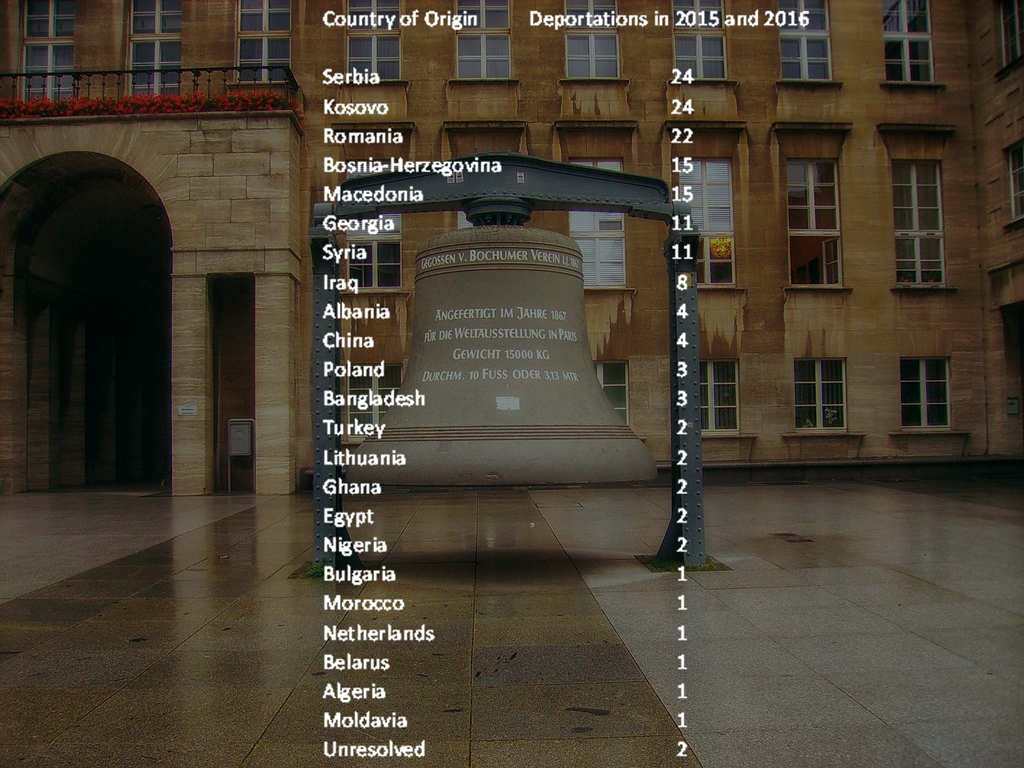On December 15, 2016 – right after the first collective deportation of 34 Afghan men – Federal Minister of the Interior, Thomas de Maizière, stated: “Such repatriation measures are important and necessary in order to keep our asylum system functioning. I consider it important to execute and continue such measures responsibly and cautiously as well as determinedly and consequently.”
Although the UN Refugee Agency (UNHCR) recently published a report which states that “the entire national territory of Afghanistan is affected by an internal armed conflict”, a second collective deportation has been executed on January 23.
In the past year, North Rhine-Westphalia (NRW) has conducted 26,611 departures in general, of which 21,490 have been executed on a
so-called voluntary basis. NRW’s Interior Minister Ralf Jäger says: “The voluntary departure is the most humane, easiest and most cost-efficient way.” However, he also emphasises that, if people refuse to take this opportunity, “applicable law has to be consequently enforced and departure asserted”.
The situation in Bochum
In 2015 and 2016 combined, Bochum has deported 162 individuals, of which 40 were legally incarcerated. Further 376 individuals were obligated to leave the country and offered the opportunity to proceed with a controlled voluntary departure. There is no data in Bochum’s records concerning the country of origin for this. Thus, it is not possible to say if and how many people were sent to Afghanistan.
Hans Hudde of Treffpunkt Asyl Bochum, an aid organization for refugees, says: “The problem of course affects other states in war zones and conflict areas; Afghanistan just is the most striking example.” He further criticises the voluntary departures: “Those who volunteer to leave are facing enormous pressure and often choose this possibility solely because they want to avoid an imminent nocturnal deportation, which could be a traumatic experience for them and their relatives.”
Antonia Kreul of the Medizinische Flüchtlingshilfe Bochum (MFH) offers advice to unattended underage refugees and young adults concerning the asylum procedure, their right of residence, and the German legislation. Lately, she noticed that more and more clients from Afghanistan or other so-called “safe countries of origin” approach the MFH because their asylum applications have been declined. They fear deportation which results in a panic, especially amongst young, single, male, asylum seekers.
Protests in Bochum and Düsseldorf
In light of the current collective deportations and possible future deportations, various organisations will hold demonstrations. At 2 p.m. on February 1, Treffpunkt Asyl will gather supporters in front of the Bochum Townhall for a rally while the council is in session discussing deportations to Afghanistan. Additionally, on February 11, there will be a demonstration in Düsseldorf to protest against the deportations on a federal level.
:Tobias Möller


0 comments